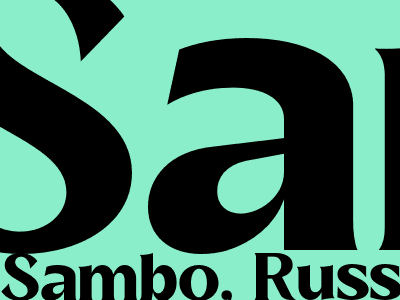
The History of Sambo: From Soviet Self-Defense to International Sport
Introduction
Sambo, a self-defense system developed in the Soviet Union, has evolved into an international sport practiced by enthusiasts worldwide. Its origins, techniques, and global reach have shaped the martial art into what it is today.
The Origins of Sambo
During the early 20th century, the Soviet Union sought to develop a standardized self-defense system for its military and law enforcement forces. Vasily Oshchepkov, a renowned martial artist specializing in judo and wrestling, was tasked with creating this system.
Combining elements from various martial arts techniques, including judo, wrestling, and sambo, Oshchepkov developed Sambo in 1924. The name "Sambo" is derived from the Russian phrase "SAMozashchita Bez Oruzhiya," meaning "self-defense without weapons."
Techniques and Principles
Sambo is characterized by its use of grappling techniques, joint locks, throws, and submissions. Its principles emphasize balance, leverage, and control over an opponent.
Unarmed Techniques
- Throws and takedowns
- Joint locks
- Chokes and strangles
- Pressure point strikes
Armed Techniques
- Knife disarms
- Stick disarms
- Firearm disarms
The Evolution of Sambo
Initially used as a military and law enforcement self-defense system, Sambo gradually gained popularity as a sport.
Competitive Sambo
In the 1930s, the first Sambo competitions were held in the Soviet Union. Competitors engaged in two disciplines: sport sambo, emphasizing throws and submissions, and combat sambo, a more realistic self-defense application.
International Recognition
Sambo's international presence expanded during the Cold War, as Soviet athletes demonstrated their skills in various competitions. The International Sambo Federation (FIAS) was founded in 1968, and the sport was recognized by the International Olympic Committee (IOC) in 2018.
Sambo Today
Today, Sambo is practiced in over 80 countries worldwide. It is a popular martial art for self-defense, sport competition, and physical fitness.
Global Reach
Sambo is particularly popular in Russia, Eastern Europe, and Central Asia. It is also gaining traction in North America, Europe, and Asia.
International Competitions
Major international Sambo competitions include the World Sambo Championships, the European Sambo Championships, and the Asian Sambo Championships. These events showcase the highest levels of Sambo skills and attract athletes from around the world.
Conclusion
Sambo, originating as a Soviet self-defense system, has evolved into an international sport with a rich history and diverse techniques. Its focus on grappling, self-defense, and sport competition has made it a popular martial art practiced by enthusiasts worldwide.